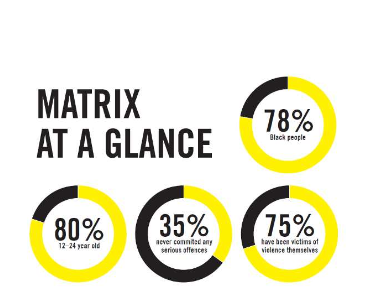The Peak District is a land of desolate beauty, where stillness and silence is broken by the murmuring of the wind, the chattering of the grouse fluttering between gorse and fern, and the occasional clomp of boots, as Goretex-clad walkers clamber up hills and march across the edges. But even here, a landscape only lightly touched by man, the effects of the pandemic have been felt, with the roar of drones shattering the tranquility last week. These drones were not being controlled by inconsiderate youths, but by officers of the Derbyshire Constabulary, as they sought to investigate those having the audacity to socially isolate themselves and their dogs in one of the most uninhabited parts of the country.
The filming and subsequent broadcast on twitter of people wandering through Britain’s natural scenery was only an early example of some officers’ gleeful seizure of their new powers. It has just been a week, yet there have been reports of officers threatening a shop-owner attempting to chalk social-distance markers on the pavement, challenging individuals for buying ‘non-essential’ goods, and charging a woman for driving around the town because ‘she was bored’. Meanwhile, senior representatives of such constabularies have taken to the airwaves to defend this approach, with Martin Hewitt, chairman of the National Police Chiefs Council, claiming that it reflected the fact that we are ‘facing a national emergency, not a national holiday’, and Superintendent Pont of the Derbyshire Police arguing that using a drone to film dog-walkers was his force applying ‘the law the government makes’.
Such police empowerment has primarily come from a statutory instrument enacted last week, the Health Protection Regulations 2020, put in place by the Health Secretary, Matt Hancock. This instrument – passed without parliamentary scrutiny – imposes some of the most significant restrictions ever placed on people’s liberty in the UK, and in doing so, gives considerable latitude to the police to regulate public behaviour. In essence, it confines the entire nation to their homes, permitted only to leave if they are armed with a ‘reasonable excuse’- turning the presumption of liberty on its head.
Admittedly, the range of such excuses is broad, 13 listed categories that stretch from the need to exercise to the need to ‘avoid injury or to escape the risk of a harm’. Given that we should all be minimising our exposure to the outside world, both for our sakes and for others’, it covers nearly every reasonable circumstance as to when someone should be outside their home. What this range of factors is, however, dependent upon, is the attitude of the police. What is ‘reasonable’ is at the discretion of every individual officer.
The overwhelming majority of officers will be trying to enforce these regulations with humanity and common-sense, recognising that everyone is struggling under the new regime, and that while some individuals will be seeking to take advantage, or behaving with a callous impunity, most are doing their best to adapt and comply. For those officers in the minority, however, this pandemic is an opportunity for a power-trip, to live out their fantasies as micro-monarchs.
Under the regulations, the police can either arrest those in breach of the regulations, seeking a criminal conviction, or, as is more likely, issue a fixed penalty notice, imposing fines (in the first instance) of 60. While criminal convictions have the check of the magistrates court (setting aside the difficulty and expense of a defence), the fixed penalty notices have no such checks, issued purely at the whim of an officer. Although anyone is free to challenge such a notice, most do not have the resources to do so, and will grudgingly accept the fine, within even those who can afford it figuring that the hassle of fighting it in court is not worth the 30 that the fine is reduced to if paid within fourteen days.
Beyond the fact that people should not be paying fines issued by overbearing and unaccountable police officers because it is the smoother course of action, are the more significant ramifications that such draconian enforcement may have. People are generally law-abiding, and most people will be trying to remain within their homes as much as possible. Hearing about officers checking people’s purchases and grading their necessity, or setting up road-blocks and questioning people on their destination, will terrify many, leaving them apprehensive about leaving their homes, becoming tense at the sight of a police officer.
These are undesirable consequences, but they pale in comparison to the risk that others may face in unnecessarily confining themselves to quarters. Countries in quarantine have already seen a worrying escalation in domestic violence, while mental health issues will be exacerbated, to give but two examples. Leaving the house because of such concerns is entirely lawful and absolutely necessary- yet some will believe that unless they are venturing outside to purchase real necessities, or for strenuous exercise, they are breaking the law, and so will remain inside come what may.
There will also be consequences for the police, should they continue in this vein. The British public, thankfully, have a good relationship with the police, one of co-operation and respect. But those few officers that are acting in an overzealous manner, applying a stretched interpretation of what they are empowered to do, will tarnish the public image of the force as a whole, undermining the efficacy of our system of policing. This is because the police’s authority is ultimately dependent on the acquiescence of the public, lacking the resources to rule by force alone. Acting disproportionately undermines this authority, and those senior officers defending the actions of those overzealous officers on patrol should consider whether their time would not be better spent educating their constabularies on the meaning of proportionality, rather than in encouraging them to overreact in draconian ways.
The government has never before had so much control in Britain. For the moment, this control is tolerated as an unfortunate necessity, something to be stoically borne until circumstances change. But this grudging acceptance does not mean that we have ushered in a police state, even one where the police are motivated by an altruistic desire for public health. The current stoicism of the people rests upon the state’s commands being seen as credible by the self-same people, and so the entire edifice of the government’s response to the pandemic rests upon public compliance. The executive branch should be wary of the corrosive actions of a few rogue officers undermining this public will, undoing everything that has been achieved so far.







